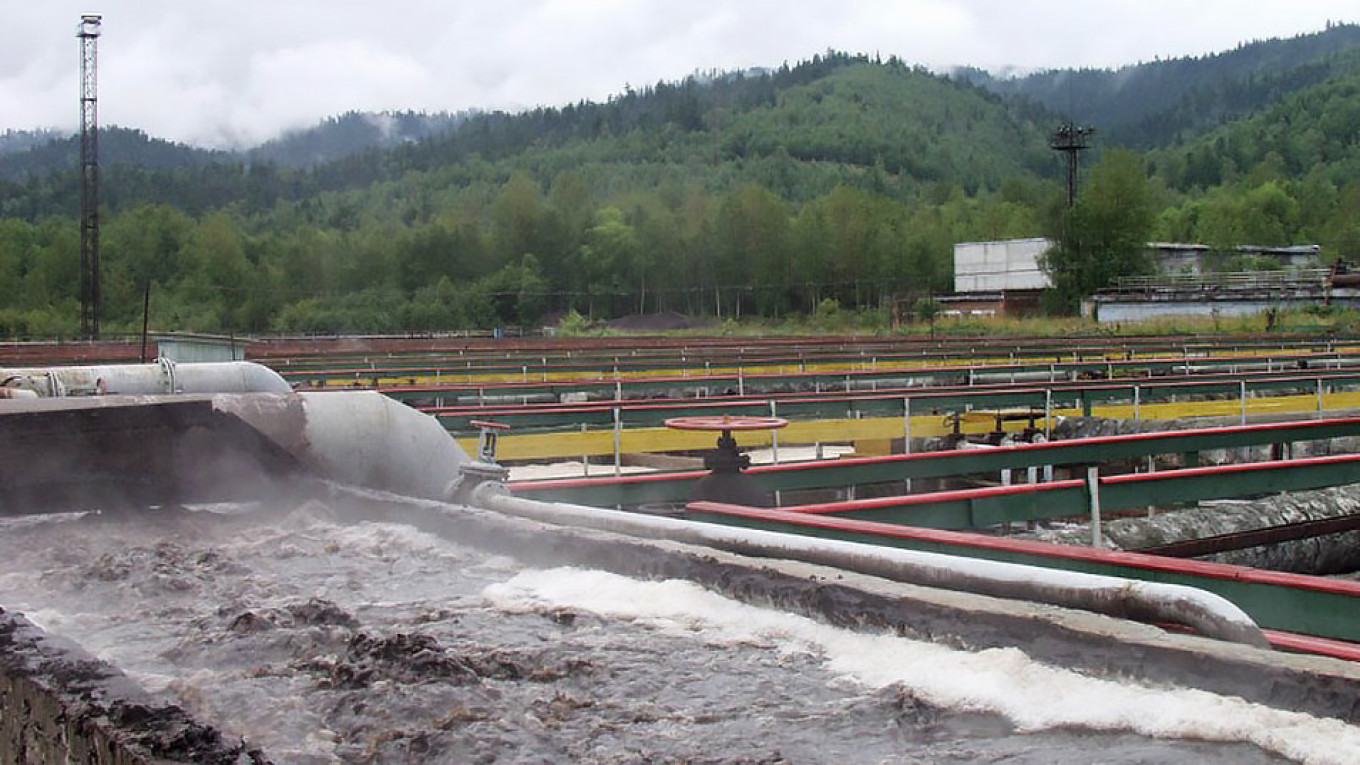
More than 15,000 metric tons of toxic waste have flown into Russia’s Lake Baikal from its largest tributary in the last decade, the state-run TASS news agency reported Monday.
Environmentalists have acknowledged pollution at Lake Baikal, the world’s deepest and oldest freshwater lake, since at least 1998. Scientists warned last week that proposals by the Natural Resources and Environment Ministry to expand waste discharge limits violate Russian law protecting Lake Baikal.
The Selenga River — the largest to flow into Lake Baikal — received in excess of 15,000 metric tons of toxic substances since 2010, according to a Russian Academy of Sciences assessment on Lake Baikal obtained by TASS.
“The overall mass of pollutants released into the Selenga is even more dramatic” given the 56 million liters of sewage discharged daily into the river from the republic of Buryatia’s industrial city of Ulan-Ude, the assessment is cited as saying.
The scientists also blamed existing environmental regulations for preventing the launch of wastewater treatment facilities built in 2017.
The Natural Resources and Environment Ministry’s proposals could enter into force as soon as May following public discussions.
Environmental concerns over Lake Baikal made headlines last month after public pressure forced local authorities to revoke a Chinese bottling plant’s construction license.

Leave a Reply